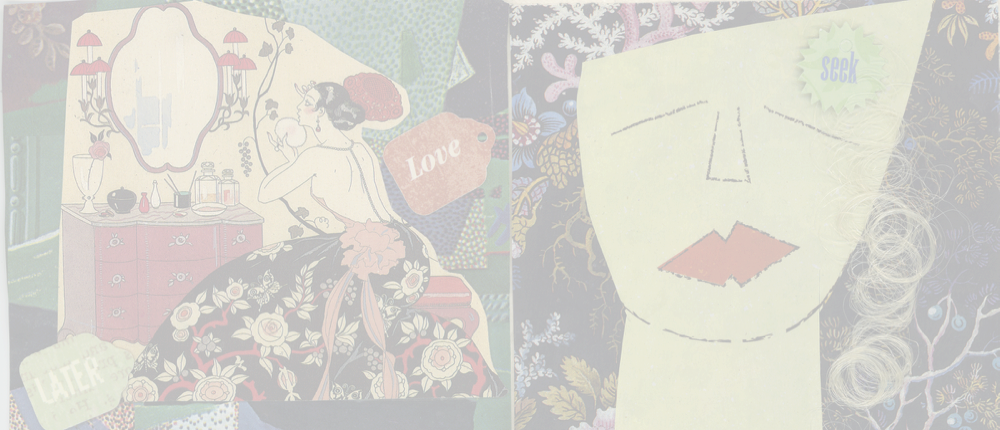
Maryfrances Wagner Writer

Writing
In a Season of Absence
We plowed under the familiar
with the blackened basil leaves.
Now abandoned recipes wait
on the counter. Here is the absence
of cinnamon and sage, biscotti
and wine. Shadows settle
into empty chairs around this table
where no candlesticks soften
the room. Plants sent to hold us up
crowd this space. In the peace plant,
a cobra arches its hooded head.
The single gardenia lifts its odor
to everything unanswered. Night
is silent, except the echo of a seed
in its hollow pod. We stare
through the window, trolling
an empty sky, black as the earth
our feet tamped back into place.
Stars do not feed the masses.
The wilderness has found us out.
Darkness widens our pupils.
First published in New Letters
Victims Lose Direction
In a blizzard, snow surrenders its direction,
unsure if it's snow or sleet, one with the wind.
A man once walked through a blizzard to bring me
a yellow rose and a package wrapped just like
a Bicycle deck queen of hearts.
He was unlike my father, except he knew
how to mend the broken, build what he needed.
Once he built a tetrahedron kite we flew
in an open field of wild flowers. With him
I cracked my first lobster, unsure about forks.
He rescued me from the undertow of a barge
when our canoe tipped on the Missouri River.
He helped me raise six baby rabbits
he recovered from a deserted nest.
He sent dozens of yellow roses.
Through that blizzard, his eyelashes iced,
his jeans crusted, he never lost his way.
That took knee-deep rice paddy mud,
unspearing men from pungi pits,
stepping on a Claymore mine.
After months in Army hospitals,
he folded an origami diamond, identical
to the engagement ring inside. But he couldn't
mend nerve damage, soften welds of scar tissue.
In a blizzard, victims lose direction, see
what isn't there, collide with what is,
become one with the sleet pocking away at them.
The bridesmaids wore daisies in their hair,
the groomsmen dress blues. Guests threw
rose petals as we stepped through a saber arch
supported by wounded vets, our smiles
mirrored over and over on the sharp blades.
First published in Birmingham Review
All the Time Running
Even when you see it coming,
leave tread prints behind,
you'll wonder about this moment,
this curve at dusk, the dog chasing
a coyote across a field, the coyote
losing ground each time he checks
his pursuer, all the time running
toward the road, toward the woods
on the other side, all of us thinking
we have enough time. Then brakes
yield that rubbery smell of trying.
In that instant the coyote sees you,
his eyes hold all he knows.
When you stand on the shoulder,
you'll see the pool form, the eyes
glaze over, the body heat
shimmer into air; how fast
light subtracts itself.
First published in MidAmerica Review
The Last Shot
Colt 45. M-16. Glock 13.
My brother and I watch The History of Guns.
Diagrams and battle scenes,
explain the ways of war. I learn
the dominance of an Uzi, the clout of a Luger.
My brother points at guns he's owned,
before he oiled and wrapped each one
to send home with his sons, before
his doctors started another treatment.
Last summer I lined up with his children
to shoot a Coke can with his AK-47.
He insisted on where we pointed our toes,
pulled back our shoulders, slumping
under the rifle's heft. Whether we hit
dirt or can, we handed off the gun,
changed by the force of that bullet,
eager to see my brother shift and nod approval.
He wishes he'd taught me a better feel
for a trigger, the upper hand in the site.
He thinks I should own
at least one gun. Snub nose. P-32.
The borrowed BB gun doesn't count.
On that summer day, he stood so small,
his head hairless, the perfect marksman
now a shadow leaning. With a patch
over one eye, he shot his last time,
the kick knocking him off his feet.
The war inside him using up his arsenal,
his t-shirt a white flag billowing,
he grabbed the side of the shed and hung on.
First published in Birmingham Review
Geometrid
Red eye, red sky, red and grey mottled coy.
What if no more blood streamed around the clods?
We could all float out on the sea's shoulder like carp.
The looper hurls himself into air.
Knows the grass will hammock him.
He can hear it sway and applaud the wind.
The sky pulls back its dark thoughts,
reddens the awning and hidden steps,
shakes out its black tarp over the tarn.
It arms the stars with needles,
waits for us to be the looper, the moth,
to ignore the silence of red glass.
First published in Chariton Review
When I Am In My Kitchen
Under my palms, dough rises on Nonna's breadboard.
Knives, dependable as good clocks, ease through
fish and avocado, chop onions or eggs into dice.
I mince and mash, sauté and stew,
sift and fold, wield spatulas and spoons.
With metal whips, I coax froth and foam.
I slip basil into marriages of garlic and olive oil,
know dash from smidgen or pinch.
I grate and grind, zing zest, and flip.
I'm not afraid of cardamom and coriander, fennel
and bay. I tuck dill into hummus, know the ménage
of rosemary, sage and savory; cinnamon, nutmeg and clove.
I remember mother's meringues, the melt
of her teacakes, the meld of her stews—
and Nonna and her pots heavy and true,
her palm measuring salt, its immutable truth,
its briny clip in the mouth, its promise to preserve.
First Published in Poetry East
Aunt Mary Postulates One Sunday at the Nursing Home
You look like your mother today. You cut your hair!
It's nice enough, but you need pouf on top.
We don't have faces for flat dos. See how
Jimmy combed my hair. I've got pouf.
He's such a good son. And I'm wearing
Elizabeth Taylor's cocktail ring.
Jimmy bought it for me on late night TV.
Jewelry of the Stars. I'm getting Ava Gabor's
brooch next. Boy, she had a lot of affairs,
but she had great jewelry. Speaking of affairs,
Marie Coleman was having one, three doors
down from us, and nobody knew. I don't get it.
Chi lo sa? People could have affairs in here at night.
No one ever comes around to check on us. We could
stop breathing and no one would know.
Necrophiles could neck in here all night long.
Never saw any reason for affairs. The jewelry
they get would be nice, but boy, the sex:
just a bunch of fiddling around in the dark.
What's the big deal? I'd rather go dancing, wear
a mink coat, yeah, white ermine, and diamonds.
First published in Rusty Truck
Ragazza
A good Italian woman
will cover her dust-free house
with crocheted doilies,
bear dark-eyed sons,
know what to do
with artichokes and chickpeas.
Her floors will shine.
She will serve tender braciole
in her perfect sauce.,
make her own cannoli shells
bake biscotti for every wedding.
Supper will be hot at six o'clock.
She will always wear dresses.
She will not balance the checkbook.
He can doze behind the paper
when she washes dishes.
Because she will never leave him,
he will forgive her bulging thighs.
Because he will never leave her,
she won't notice unfamiliar stains.
Italian men always know ragazze
who work the fields in Bivona.
For airfare one will come.
In time she will learn English.
In time they may learn to love.
The Dream Book (Syracruse University Press)
and Literature Across Cultures (Pearson)
My Father's Bedside Drawers
My task to empty the drawers and sort.
Chap stick, shoestring, book of stamps.
Six cloves in a baggie, two rolls of Lifesavers.
Twisty ties, Goodman tape, dental floss.
Four pencils sharpened with a pocket knife;
pocket knife, roadside rocks, cockle shells.
Six Commerce Bank click pens in blue and black.
Alcohol wipes, Mic o Say bag, six wrapped toothpicks.
Needle stuck in a spool of black thread.
Used candle, pocket flashlight, two bookmarks.
School reunion program tucked in a TV Guide;
six obits, news clipping, grocery list.
Eleven screws, three sizes, Allen wrench.
Two labels: “From the wine cellar
of Sam Cusumano. No Sugar Added.”
Broken ornament, curtain swag, pheasant feathers.
Recipe for making Anisette, another for tanning hides.
Thermometer, two keys, Union 124 patch.
Baggy of Q-Tips, one padlock with key.
Tube of Ben Gay, Hall's cough drops, laminated 4-leaf clover.
Small American flag, Colt 45, brown bottle of nitroglycerin.
Thorny Locust 2013
Bromco Grater
Each surface of this four-sided box is a
different grating area. Hoosier Collectibles
Little House of Teeth.
Oh how you break us down.
Wedge of Jack. Hunk of loaf.
Torture tool. Food on a rack.
All yield to you.
Inside your grated prison fence,
dots of stars poke through.
Curved holes ribbon carrots,
pierce and skin and juice. Grid
of diamonds powder Romano.
Your sawing song reigns over
pungent Manchego, cracker
crackle, pebbled bread. You render us
runny onion, apple pulp, squish of squash,
Gerber without a jar.
Your slanted knives·open us up.
Three sharp smiles slice us through.
First published in Voices in Italian Americana
Kabul Zoo Lion
Marjan [was] at the forefront of a brutal civil war and. . .
became woven into . . . Afghanistan's . . . bloody history
but became a talisman of hope and strength for its people.
King's College London
The favorite exhibits
were always the cats—
the black face marking
of spotted cheetahs,
sleek panthers with glowing
eyes, leopards slouched
over branches, tigers and their
symmetry of stripes,
and the long-maned lions
swishing flies in the shade.
Now, it is possible to count
the felines of the world, see
their past on hunters' walls.
In the Kabul Zoo, the lion Marjan
had been the favorite before
civil war, before someone
threw a hand grenade
and took out one eye and
most vision in the other.
The visitors who came to see
the lion shake his mane,
yawn his full set of teeth,
stopped coming, and so did
the meat trucks. The bear
and the monkeys were not
lucky. The few visitors
threw stones at them. Marjan
looked sadly at bits of meat
and grain gruel. He looked
at the zookeeper with his one
remaining eye. He waited.
Grew thin. Crossed
between the bars one day
and lay down beside his keeper.
First Published in Houseboat
Aunt Mary's Jewelry
See what Jimmy brought me?
He found this pink sequined
sweater I haven't worn for months.
We might as well look nice
for dinner, even if everything
comes straight from cans.
Waste of time to say anything.
Next Sunday I want Jim to bring
the diamond teardrop earrings.
I can't wait to see them again.
You remember when you were little
and we sifted through my costume jewelry?
My pink and yellow pearls,
that green rhinestone choker,
faceted crystals on gold chains.
I had a lot of jewelry. I told you
to choose one thing to keep
from that box, and you picked
that jewel-toned brooch.
I opened my best box and showed you
the emerald ring from Uncle Johnny,
rubies my father gave me,
and the diamond earrings
he designed himself. Bella!
When sunlight hit those earrings,
colors spun around the room.
Then we ate Club crackers
spread thick with country butter
till your lips gleamed. Remember that?
First Published in Patterson Literary Review